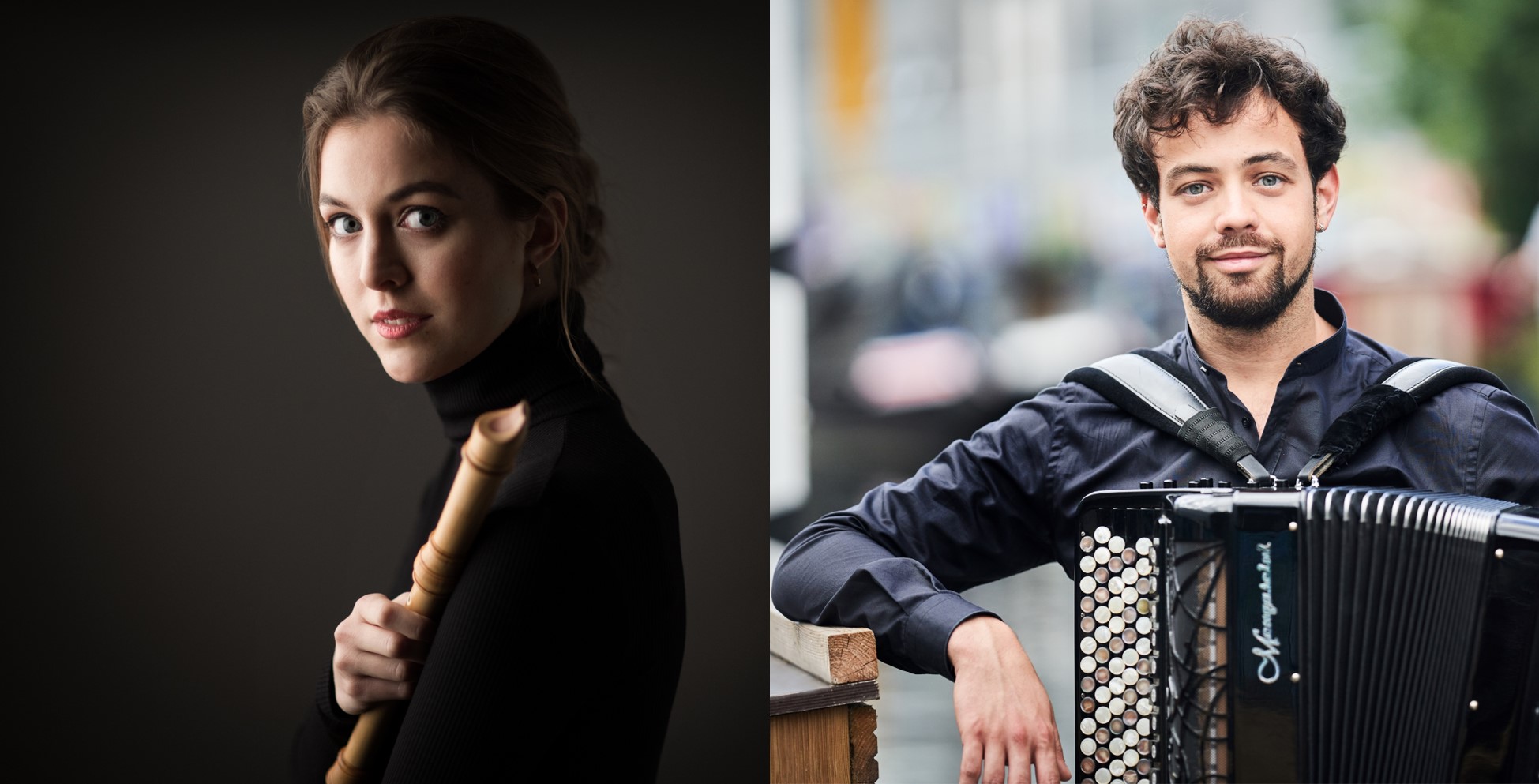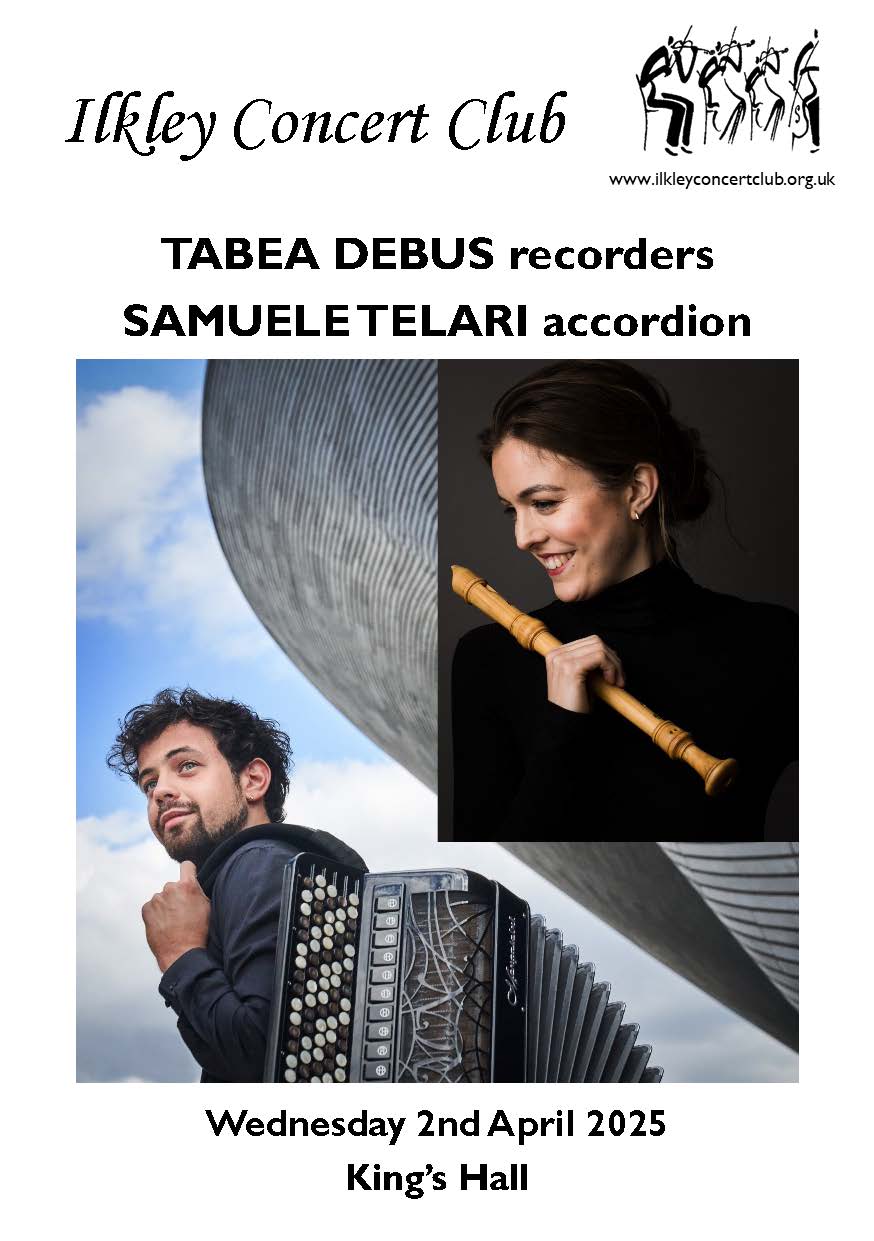REVIEWS
SAMUELE TELARI accordion TABEA DEBUS recorders

Wednesday 2 April 2025 7:30pm
The programme – Shards of Light – tracks the minimal variations of the smallest musical ‘shards’. They can be found in dances from the Renaissance or in a sonata by Bach but are also found in Eastern European folk music and works by contemporary composers.
Samuele Telari was a prize-winner at the 2019 Young Classical Artists Trust (YCAT) International Auditions and was described by BBC Record Review as having ‘musicianship … so big, so irrepressible, that he transcends the instrument that he’s playing’. He combines his accordion with the virtuosity of Tabea Debus’s playing – described as ‘rightly being credited with changing public perception of the recorder’ to explore a variety of musical styles in the programme – Shards of Light.
Spanning the centuries from Arvo Pärt’s kaleidoscopic minimalism and contemporary South American music to a dance by Dowland or a sonata by Bach and folk music from Eastern Europe, this programme traces the subtle changes in the simplest patterns – changes that can turn darkness into light, sadness to joy, something old into something new.
REVIEW BY Chris Skidmore
A voyage of discovery for the Concert Club
Tabea Debus (recorders) and Samuele Telari (accordion) took a large King’s Hall audience on an intriguing voyage of discovery last Wednesday with their programme – Shards of Light. Combining what might seem an ill-matched pair of instruments – one light and delicate and the other loud and brash – each played with dazzling virtuosity – they complemented each other superbly and introduced a wide range of interesting music.
The concert began with music from the Elizabethan renaissance by Dowland and Holborn including the famous ‘Flow my tears’. Tabea immediately impressed with her crisp articulation and gentle soft-toned legato accompanied perfectly by chamber-organ-like tones from Samuele’s accordion. This was followed by a bewitching performance of Arvo Pärt’s Spiegel im Spiegel with the piano arpeggios in the accordion, with an added bass growl, matched by the wonderfully sustained tone of the tenor recorder. Sofia Gubaidulina’s De profundis for accordion allowed Samuele to demonstrate his command of the instrument answering the challenging demands of the music which ascends from the depths to the highest notes – with some entrancing watery ‘whale music’ on the way.
The second half started with a masterclass in baroque recorder from Tabea in a performance of Bach’s Sonata in C minor, originally for violin and harpsichord, with a restrained but appropriate accompaniment from the accordion. Fascinatingly different were the two song transcriptions by Brahms and Schubert where the accordion was more prominent in bringing a romantic atmosphere and a darker tone from the recorder. A brief fragment by Stockhausen – a notable first for Ilkley Concert Club! – led us into a piece commissioned by the players from Simon Cardini which challenged our ears as much as our understanding of what it was conceivable that this instrumental combination could achieve!
Bulgarian folk music concluded the concert and brought the audience back to familiar territory, happy to acknowledge with sustained applause the undoubted excellence of the music-making from such virtuoso musicians as Tabea and Samuele.



